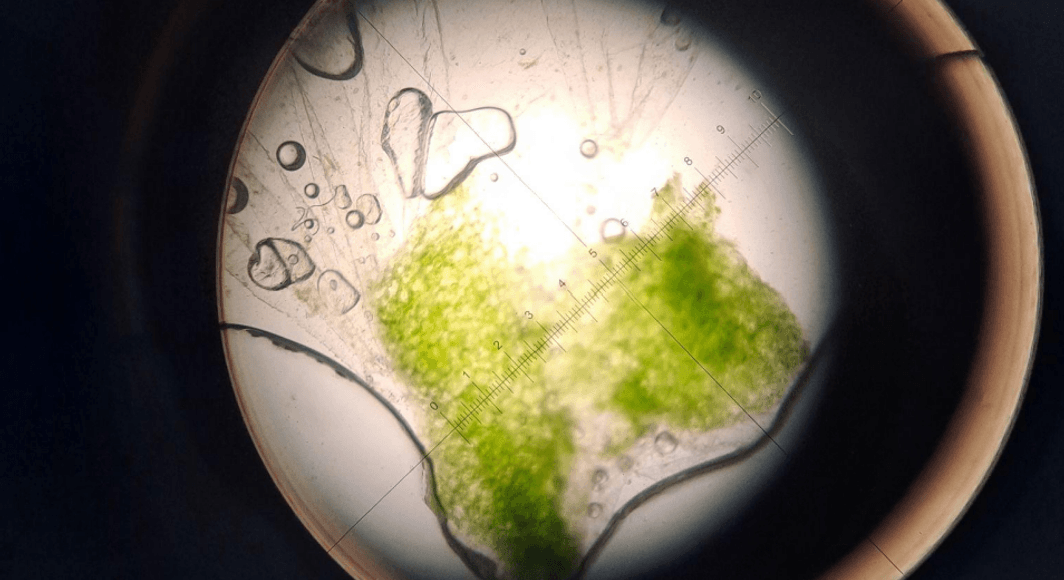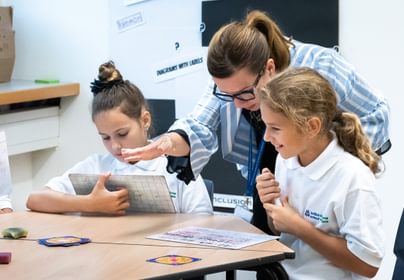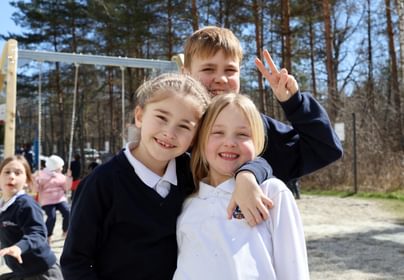A word from Mr Travis
Block 2 Week 2
Halloween has descended on BISL this week! In just a couple of short hours the PTA magically transformed the school into a spooky haunted house using all kinds of weird and wonderful decorations. We have a plethora of events awaiting our students next week, including a ‘haunted door’ competition, food stands, games and other performances. Should be a week to remember!
Another event we are also preparing for is Remembrance Day. There will be poppies available from reception each morning next week and families can send a small donation to the Royal British Legion via their website if they wish. The Royal British Legion has been supporting service men and women, veterans, and their families since 1921.
Humanities block continues apace, the week beginning with their annual bumper quiz. The Humanities subjects offer limitless opportunities to inspire and motivate young people. Students at BISL are encouraged to investigate, ask questions and have the freedom to be creative. BISL Humanities teachers seek to broaden horizons by inspiring students to challenge the world around them and think outside the box. This philosophy has embodied all the lessons I’ve seen on my learning walks this week. Wonderful to see!
External examinations have been continuing this week with candidates coming from Zagreb, Ukraine, Vienna and Trieste International School. In addition to A Levels and IGCSE, we have been hosting admissions tests, assessments required for applications to top universities in the UK, including Oxford and Cambridge. This week candidates took the Biomedical admissions test. Thank you also to Mr Batson and Mr Malden for hosting parents at our University Guidance meeting this week. It was very well attended and parents were treated to a wide range of useful information that will help students prepare for their university applications. There have been more successes in Mathematics competitions, with our students receiving certificates in the United Kingdom Mathematics Trust (UKMT) senior online competition.
Congratulations to our Year 11 student Georgi who came top in the school, whilst competing against Year 12 and 13 Mathematicians. Well done to Georgi and good luck to him and the rest of the competitors in the intermediate Mathematics challenge on 1st February 2023. Please be sure to read the latest Update from the Principal and I wish everyone an enjoyable weekend.
Mr Jonathan Travis, Head of Secondary
Sixth Form news
This week year 12 were visited by a representative of the Business and Hotel Management School based in Lucerne, Switzerland. Mr Petr Jiskra spoke to the students about the university, the opportunities that it provides and the advantages of working in a constantly vibrant sector. Students were able to ask questions and gain insights into university application, not just for BHMS but general for universities in Switzerland. This was a valuable discussion for the members of our Sixth Form to attend and one that will be repeated with other guest speakers in the future.
On Wednesday, parents and students from year 9 and above were invited to the school to hear a presentation describing the university guidance that is given at BISL. We are very proud of our successes in helping our students secure places in not only their first choice university and course but also the quality of the universities that our students have attended. Mr Batson and Mr Malden discussed success stories, the process of university guidance, the timeline, the specific help that is given whilst also dispeling any concerns regarding where A Level grades can or can't - the short answer being A Levels can allow students to attend any university in the world. To see the presentation slides please click the following link.
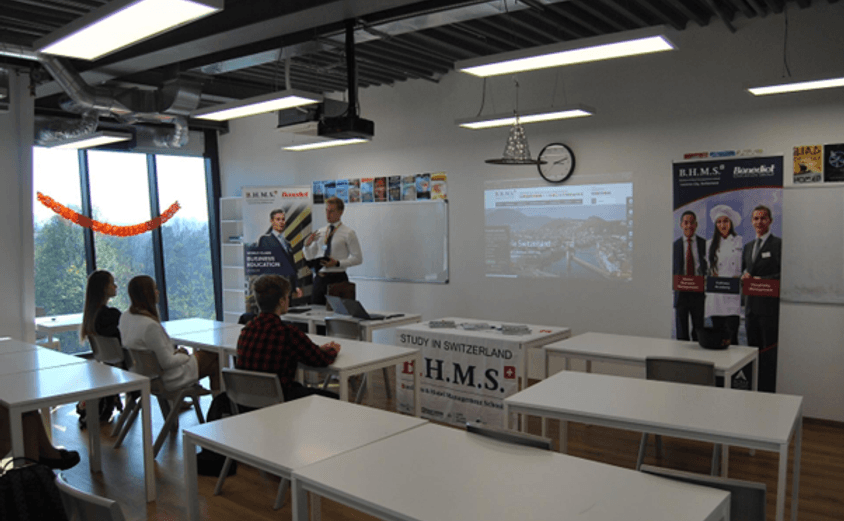
Humanities Block
What are the Humanities?
The Humanities are subjects that try to answer some of the biggest questions that we’ve been asking as humans for thousands of years. What makes us human? Is it what we think, feel and say? Is it what we do and make? And then, of course, the REALLY big ones like where did we come from? Why are we here? Humanities subjects, such as history, geography and philosophy have been trying to answer these questions for a long time, and we’ve made a lot of progress in better understanding ourselves since our evolution into modern homo sapiens at least 175,000 years ago. We’ve come far but we still have a long way to go to answer some of life’s biggest questions and understand our place in the universe. Perhaps you’ll be the next humanist to contribute to our own understanding of ourselves. What better way to use this unique and wonderful gift of being a human on our Earth at this point in time?
Mr Bradley , Head of Humanities
English news
English News:
Year 7 continued their study of the final stages of “Stone Cold” and the thrilling confrontation between
Shelter and Link.
Year 8 enjoyed getting to the point of understanding "understanding" (Connor's feelings in the chapter “Understanding.” from the novel “A Monster Calls.”)
Year 9 finished Animal Farm and created sensational plays recapping the key events and chapters.
Year 10 were introduced to the Wittgensteinian notion of "the limits of my language are the limits of my world" as they attempted to construct paper planes based on differing language in the instructions they were given first.
Year 11 analysed the presentation of tension in the opening chapters and disected Papa's violence. As Maryam says " Adichie creates tension by foreshadowing the brutal collapse of the household and the destruction of Papa's Godlike status."
PE news:
We continued to develop our awareness of competitive scenarios across a range of sports during PE this week. Year 7 focused on both badminton and tennis matchplay, with Year 8 and Year 9 working on the importance of court position when playing competitive badminton and tennis. Year 10 and 11 focused on their communication and spatial awareness skills, when undertaking some conditioned volleyball game play.
Mr Hayes, PE Department
Maths news
KS3 and KS4 students were busy preparing for and sitting in their summative assessments this week.
Year 7 students created vocabulary cards about triangles, quadrilaterals and angles and questioned each other. They also revised simplifying fractions and finding equivalent fractions.
Year 8 students delivered golden standard responses to the test questions and set their targets moving forward.
Year 9 students solved a mini murder mystery involving decimals, assembled a fraction jigsaw and solved angle properties worksheet in their preparation for the test.
Year 10 students showed excellent knowledge of percentages, money and finances on their test and are now covering fractional indices.
Year 11 reflected on their performance on the test. Then, they applied their good knowledge of factorising algebraic expressions to solving quadratic equations.
Year 13 students learnt how to differentiate exponential, logarithm and trigonometric functions, along with multiples, sums and composite functions.
Maths challenge wall
All secondary students are invited to solve the weekly problems that are posted in front of Room 316. So far, Year 7 students are really taking the lead!
Ms Zupanc, Maths Department
MFL news
Science news
Y9 students investigated how the length of a lever affects the force you need to lift a load. They learned that a smaller force is required when we apply it further from the pivot.
This week Year 9 began learning about exothermic and endothermic reactions, reactions which either give out heat energy or take in heat energy. Exothermic reactions are relatively common in our everyday lives, however endothermic reactions are less common in comparison. So to demonstrate an endothermic reaction they saw the reaction between ammonium chloride and barium hydroxide. These two powders, once mixed, become a wet, white sludge and become so cold they freeze water underneath it so the beaker sticks to a piece of wood underneath it. This sight, along with the pungent smell of ammonia that was produced, quickly interested the Year 9's about a topic that can be quite theory based In science club the students picked leaves from a
variety of plants and prepared slides using water droplets and methylene blue staining to show the stomata on the underside of the leaf. They then viewed these slides under a light microscope.
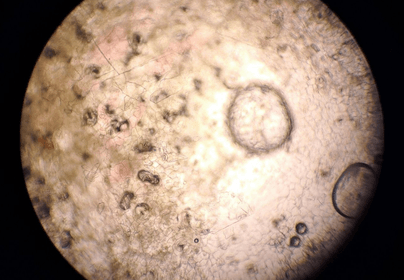
Slovene foundation
In Year 8 in Slovene Foundation, we have been talking about food recently. Students expressed what they like to eat and drink and what they don't. This was the good way to learn 2nd and 4th case in Slovene. Although it looked difficult at the beginning, the students coped with the challenge perfectly. We all are already looking forward to the next week's menu!
Ms Drofenik, Slovene teacher
Slovene Advanced
In the Slovene Advanced group this week Y9 got to know Ciril Kosmač, a Slovene novelist. We were reading his work “Gosenica” which he wrote after being in prison. The students learnt about the symbolism of the caterpillar, chestnuts etc from the story and what they represented.
Ms Kotnik, MFL Coordinator
Ms Jakop, Slovene teacher
Student Article - Science Introduction
Hello, my name is Anže, I am a student currently studying in Year 13. I have a great personal interest in science and engineering and would like to share that passion with others by spreading awareness about the major breakthroughs and technological advancements, every week in the school newsletter.
Scientists are attempting to cure HIV using gene editing HIV is a disease that has wreaked havoc across the entire world, since its jump from chimpanzees to humans. Since the beginning of the epidemic 40.1 million have died, according to the WHO. Currently around 38 million people are living with the disease, therefore finding a cure would be monumental. The virus itself is not fatal, but it attacks cells in your immune system, making it weaker and therefore more vulnerable to other infections, so even the common cold could end up . Luckily many treatments have been developed and in the last 20 years the life expectancy of a person with HIV has increased by 30 years and patients diagnosed in their 20s are expected to live to their 70s. While this is great, there are many impacts on the quality of life of those infected and they must take pills daily. The American biotech company Excision BioTherapeutics is attempting to change that by using the gene editing technology CRISPR. The company is doing their first trial of the method on a volunteer with HIV, who was infused with gene editing molecules, which will cut out part of HIV’s genome. By cutting out parts of the genome HIV will no longer be able to replicate or function, therefore returning the body the immune cells it desperately needs to fight off other infections. If the patient, who has stopped taking his HIV medication, does not see an uptick in the virus in a period of 12 weeks, the experiment will be deemed successful. Gene editing has been attempted in the past to cure HIV, but by attempting to provide the body’s genes with a mutation, which makes it immune to HIV. This has had limited success. The only two people that were cured of HIV received bone marrow transplants with this mutated gene, but these are risky and donors are rare. While the trial is small, it could be a breakthrough that changes the lives of millions of people, as well as marking gene editing the future of medicine.

